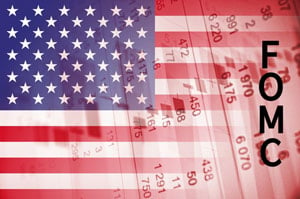 The 2016 September FOMC meeting is on Sept. 20-21, and the key focus will be on raising or keeping interest rates unchanged.
The 2016 September FOMC meeting is on Sept. 20-21, and the key focus will be on raising or keeping interest rates unchanged.
As of today (Monday), CME Group's FedWatch Tool projects only a 15% chance of a Fed rate hike at this week's meeting. Markets believe the earliest the Fed will raise rates is in December, when there's currently a 56.5% probability.
For the September 2016 FOMC meeting, there are several reasons the Fed won't raise interest rates.
But this is the biggest reason why interest rates will remain unchanged after the September FOMC meeting...
September FOMC Meeting: One Reason the Fed Can't Hike Rates
The Fed can't raise rates after the September Federal Reserve meeting because of the 2016 presidential election.
You see, there's already a precedent for the Fed acting cautiously before a major event...
When the Fed met on June 14-15, it decided to keep interest rates unchanged. That was because the Brexit vote (the vote for Britain to leave the European Union) would create economic uncertainty, and the Fed didn't want to add another catalyst to make the markets uneasy.
According to the June FOMC meeting minutes, members agreed that they needed more information on the long-term consequences of Britain leaving the EU.
Surprisingly, the Fed acted wisely, as the Dow Jones Industrial Average fell more than 3% the day after the vote.
Trending: Get the Best Investing Research Today to Grow Your Money
And just like with Brexit, the 2016 election could create massive volatility in the markets depending on who wins...
Historically, stocks have performed better with a Democrat in the White House. According to Steven Pressman, professor of economics at Colorado State University, the stock market has had an annual return of 9.7% when the POTUS is a Democrat.
[mmpazkzone name="in-story" network="9794" site="307044" id="137008" type="4"]
In comparison, stocks have returned 6.7% annually when a Republican is in the White House.
But aside from historical data, each candidate individually leaves investors uncertain of how the markets would perform under their leadership.
Pressman believes Trump would be great for the energy and construction sectors. But he also believes Trump would be bad for the bond market and cost the U.S. sales in markets abroad.
And even though Hillary Clinton has more political experience, investors are still leery of her presidency. A big threat is that she will favor large financial institutions and lead them to make speculative investments, which is what contributed to the 2008 stock market crash.
There's always the chance the Fed could raise interest rates and shock the markets after the September FOMC meeting. But if it shows the same caution as it did with Brexit, rates will remain the same.
The Bottom Line: The September FOMC meeting is on Sept. 20-21. The Fed will discuss whether or not the global and U.S. economies are strong enough to raise interest rates. But because of the volatility the 2016 presidential election could create in the stock market, it's highly unlikely the Fed will raise rates. According to CME Group's FedWatch Tool, there is only a 15% chance rates are raised in September.
Up Next: Money Morning Global Strategist Michael Lewitt believes the Federal Reserve could destroy capitalism. Not only are the Fed's plans dangerous, but Lewitt says they are unconstitutional. This is going to erase your wealth and lead to the next recession. But Lewitt has created a guide to help our readers protect their hard-earned money and stay ahead of the "sickness in the system."
Follow us on Twitter @moneymorning and like us on Facebook.


